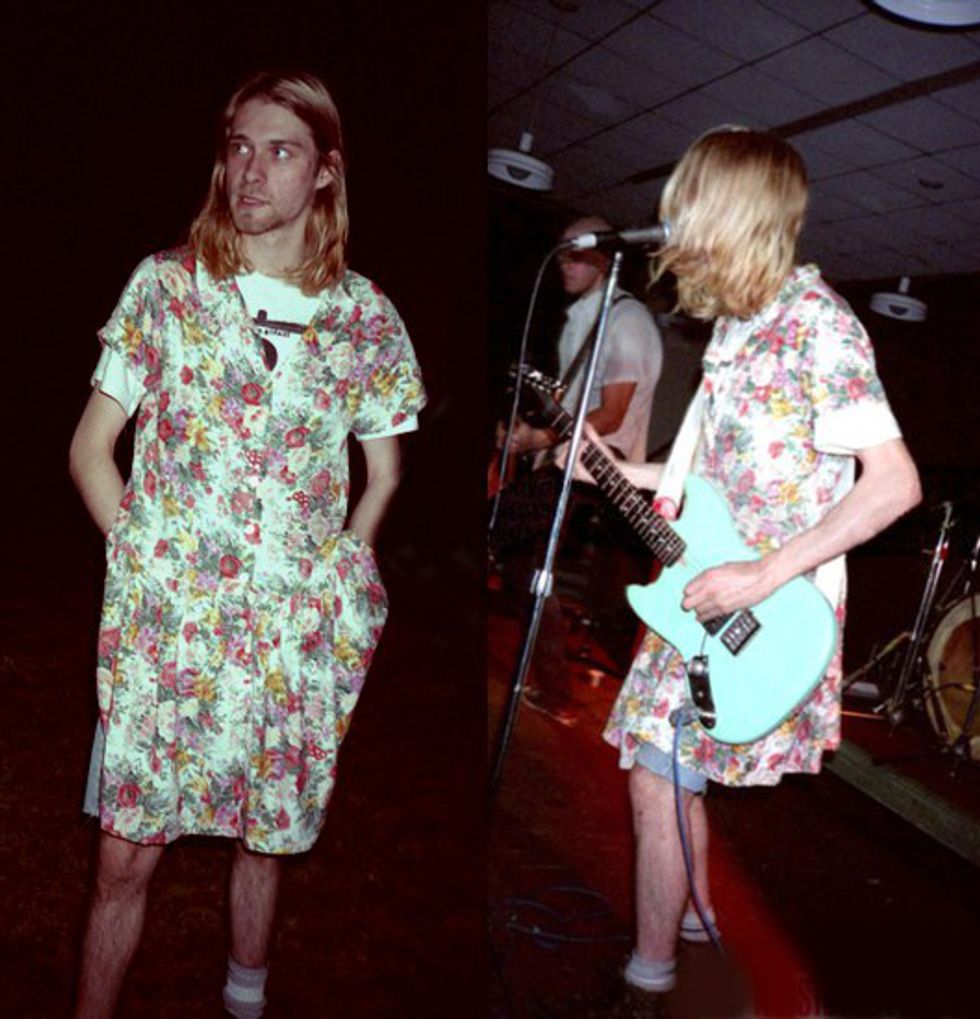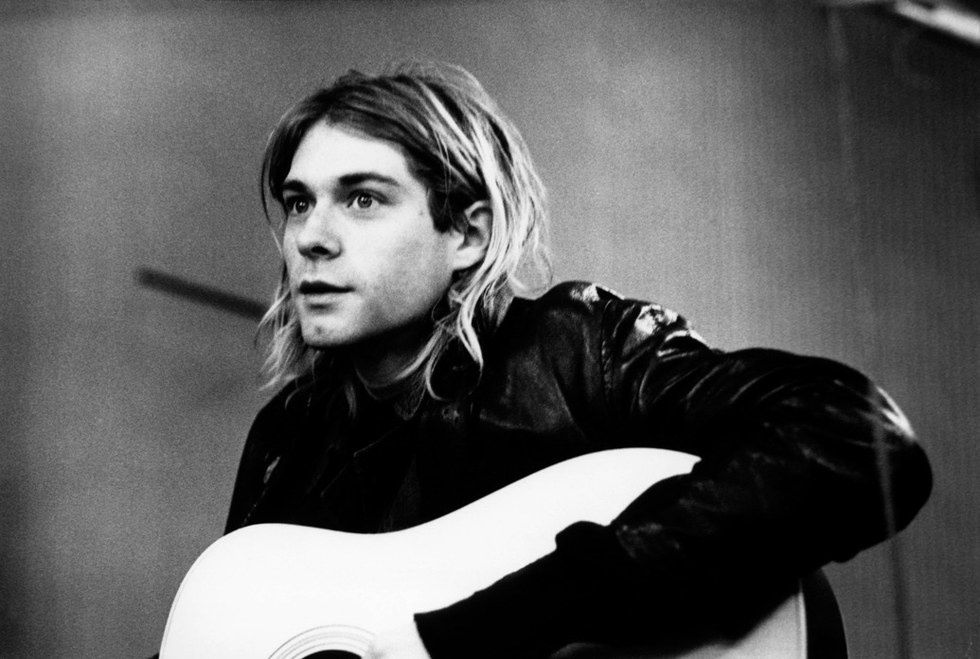"I thought I might be gay or something because I couldn't identify with any guys at all. None of them liked art or music...It was many years ago but it gave me this real hatred for the average American macho male." - Kurt Cobain
Kurt Cobain would have been 49 this past Saturday on February 20th. Kurt Cobain was one of the most iconic rock stars in history, Nirvana has sold over 75 million records worldwide, making them one of the best-selling bands of all time. In addition to being lead singer, guitarist, and songwriter for Nirvana, Cobain was one of the few male feminists of his time. Up until his tragic suicide in 1994, Kurt Cobain used his fame to vocalize against sexism, racism, and homophobia.
Kurt openly rejected the ideals of masculinity. Cobain stated in his published journal, " ...there are thousands of green minds, young gullible 15 year old boys out there just starting to fall into the grain of what they've been told a man is supposed to be...The most effective tool is entertainment." Kurt knew that his fame put him in the spotlight and he was thus able to publicly tackle social issues and defy gender roles. His artistic, timid nature actively worked against the ingrained sexism of his time, validating that iconic rock stars could be feminists too. Cobain often wore dresses during performances and even in music videos, because it showed he could be as feminine as he wanted, Cobain told The Atlanta Journal in 1993.
Because of Kurt's hatred for masculine ideals, he identified himself more with women and racial gender minorities. A staunch example of this was his rivalry with Axl of Guns N' Roses. Nirvana refused to tour with the band because Cobain believed that they were racist, homophobic, and sexist due to their lyrics such as in One in A Million. Cobain stated the issue was "something you can't ignore, " asserting his beliefs were much more important than a tour opportunity or reconciliation with Guns N' Roses.
Before the emergence of gay rights, Cobain was outspoken about his detest of homophobia. “I’m definitely gay in spirit and I probably could be bisexual,” Cobain told the Advocate, (a gay and lesbian magazine.) Nirvana performed at the No On 9 benefit, an opposition to Measure 9, a ballot measure in Oregon in against the support of gay rights in 1992.
Kurt Cobain wrote Polly about a 14 year old rape victim that he read about in the newspaper. His graphic language was intended to show evil of rape and admiration he had for 'Polly' to escape from this rapist. Rape Me, the second single off of In Utero, was considered to be an anti-rape message. "It's like she's saying, 'Rape me, go ahead, rape me, beat me..You'll never kill me.'" Cobain told Spin.In a 1991 interview with NME, Kurt Cobain was discussing the issues of rape culture, something that wasn't focused on as much as today. “Rape is one of the most terrible crimes on earth. And it happens every few minutes. The problem with groups who deal with rape is that they try to educate women about how to defend themselves. What really needs to be done is teaching men not to rape." Nirvana performed at benefits for women's reproductive rights as well as a benefit for Bosnian rape survivors. Cobain hoped that advocating against rape culture and defying gender roles would inspire women to change the misogyny in society as well as within the rock industry, believing women were "the only future in rock n' roll."
Being such a prominent figure in pop culture, as well as being a staunch feminist raises the question of how Kurt Cobain would have influenced the world today. Would there have been more men embracing feminism or speaking out against racism and homophobia? Despite his battles with drug addiction and his heartbreaking suicide, on his birthday we should commemorate his legacy as an empathetic rockstar and progressivist, attacking the restrictive values within society.
























